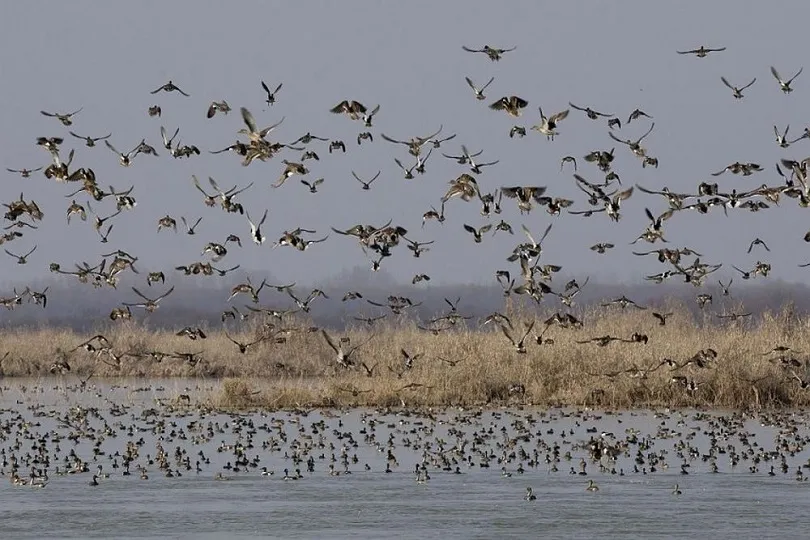Jammu: The famous Gharana Wetland on the outskirts of Jammu city is all set to get a major facelift with a focus on conservation of ecosystem and creating an attractive spot for bird watching, an official said on Friday.
Chief Secretary A K Mehta on Thursday laid the foundation stone for the all round development of the wetland, which is set to become an example of conservation of the ecosystem apart from being an attractive tourist spot.
Gharana Wetland Conservation Reserve is home to more than 170 species of birds like bar-headed geese, gadwalls, common teals, purple swamp hens, Indian moorhens, black-winged stilts, cormorants, egrets and green shanks.
During the peak season, the water body attracts nearly 5,000 migratory birds from Central Asia, Mongolia, Russia, China and other countries across the globe, offering a great opportunity for bird lovers to .
Highlighting the importance of fresh water reserves like lakes and rivers, the chief secretary said such places are best tourist destinations that attract nature lovers.
“Our endeavour should be to protect them along with making best out of their beauty and aesthetics,” he said, asserting that along with the nearby Suchetgarh village, Bagh-i-Bhour, this wetland would soon become a tourist hotspot.
Mehta urged the authorities concerned, to carry out a study on the ecosystem health so that the conservation measures are more focused and result-oriented.
He stressed on taking measures to increase the water level in the water body and attracting more migratory birds coming from distant countries.
Besides developing the water body, the plan includes developing a large park, bird viewing decks, biogas plant, composting plant, wallowing area, STP, perches, reed plantation area and many more common amenities, said Chief Wildlife Warden Suresh Kumar Gupta, giving a detailed outline of the development plan of the Gharana Eco-Spot’.
Commissioner Secretary, Forests, Sanjeev Verma said the department has carried out surveys of all wetlands in terms of their significance in biodiversity.
“The Department is in a process of conservation of all of them,” he said, adding in the last few years, five of these wetlands have been added to the list of Ramsar sites by UNESCO.











